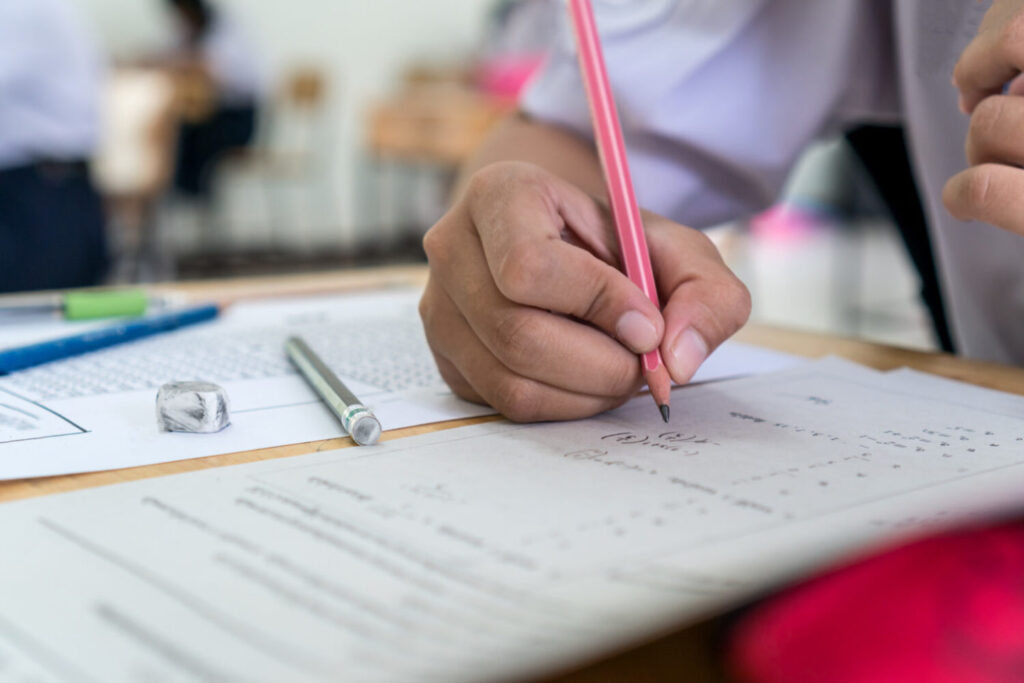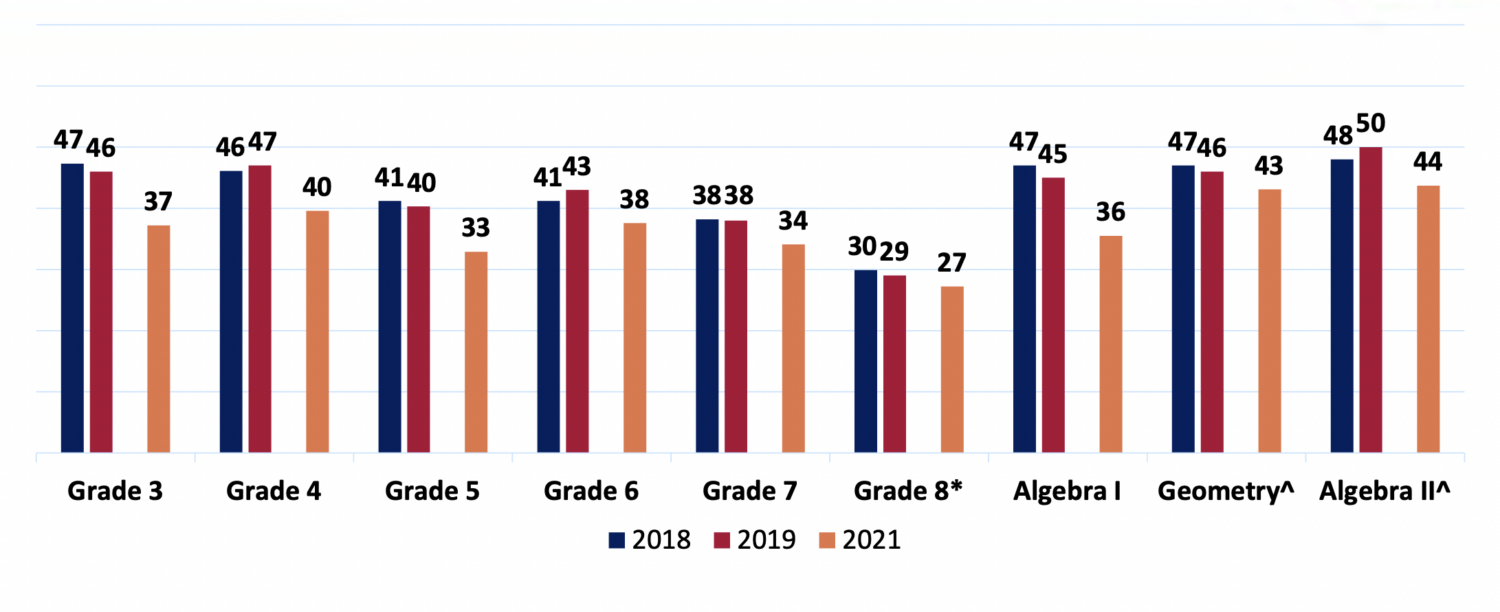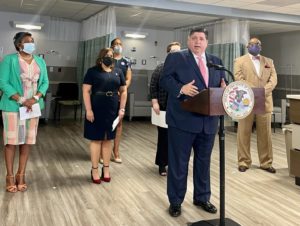Missouri Test Scores Show Virtual Learning, Pandemic Had Detrimental Effect on Students
Missouri K-12 preliminary test scores from last year were just released by the Missouri Department of Elementary and Secondary Education (DESE), showing the immense impact that school closures,…

Missouri K-12 preliminary test scores from last year were just released by the Missouri Department of Elementary and Secondary Education (DESE), showing the immense impact that school closures, virtual learning, and other pandemic-related setbacks have had on students. Math was the subject with the greatest decline: nearly one third of those tested scored below ‘basic’. According to DESE, Elementary students were affected more than Middle School, Mathematics more than English, and the largest decrease (nearly 10%) was in Algebra I.

Math scores for ’18, ’19, ’21 compared. Source: Missouri DESE
Susan Pendergrass, director of research and education policy at the Show-Me Institute, referred to the news as indicative of a possible ‘crisis’. “Virtual learning was a failure,” she said. She also noted the alarming data on early readers:
We have a reading problem on the horizon. One group that I have been very concerned about during the pandemic is early readers. English/Language Arts scores dropped in all the early grades. But what’s really troubling is that out of 60,000 third graders tested, 3 in 10 scored below Basic and another 3 in 10 scored at the Basic level. That’s over 35,000 third graders that will not be able to read a math book or a science book unless we take immediate action.
Pendergrass also draws attention to the ‘dismal’ scores of Missouri’s most disadvantaged students—Black and Hispanic students, students with disabilities, low-income students, and students learning English as a second language:
Eighty-five percent of Black students, 87 percent of students with disabilities, and 74 percent of low-income students demonstrated only a minimal or partial understanding of the material.
The results call into question the closures and virtual learning policies implemented over the last 18 months. Even the state-level administrators who supported those policies are in agreement that virtual learning has caused major setbacks. Missouri State Education Commissioner Dr. Margie Vandeven spoke at a virtual press conference about the results:
Teachers and students were absent for extended periods of time due to illness and quarantine. Teachers and students were experiencing unparalleled stress, fatigue and mental health issues. Students were often learning throughout the year with new and changing modes of instruction, be it in-person, hybrid, or fully remote.
Melissa Randol, the Executive Director of the Missouri School Boards’ Association, added in a statement: “The MAP scores reinforce what we already knew—teaching in person makes a difference. And when you can’t teach in person, access to the internet and adequate bandwidth make a difference.”
Missouri’s results align with what has been seen nationwide. According to a report last month, students were, on average, “five months behind in mathematics and four months behind in reading by the end of the school year.”



